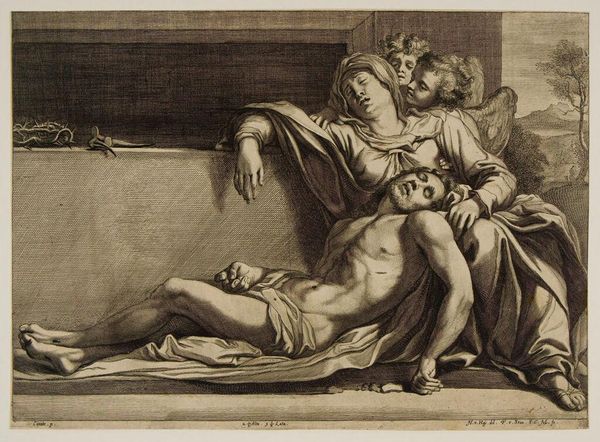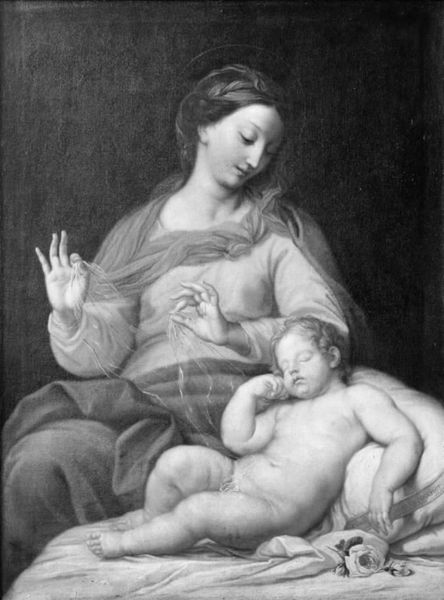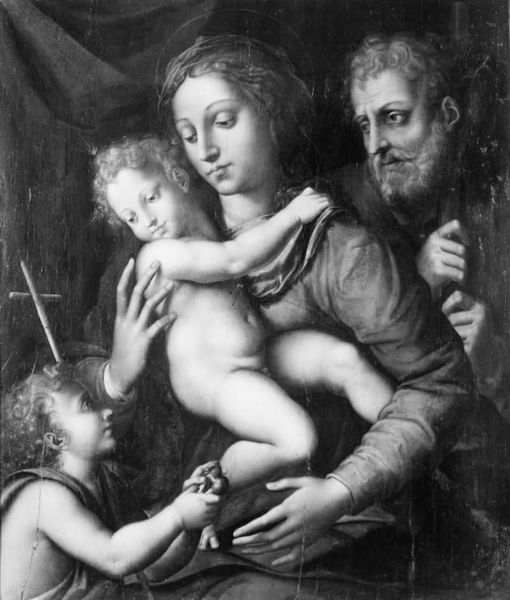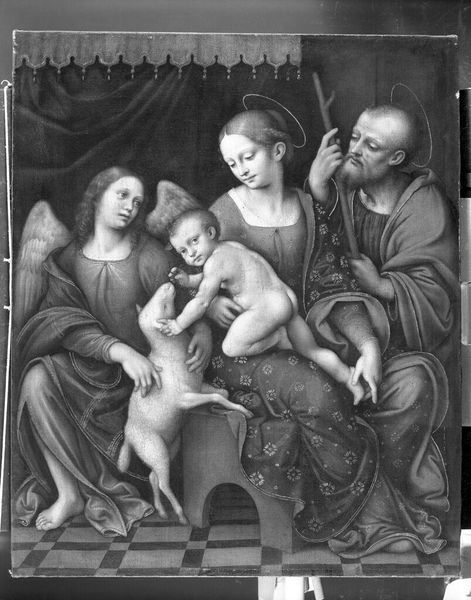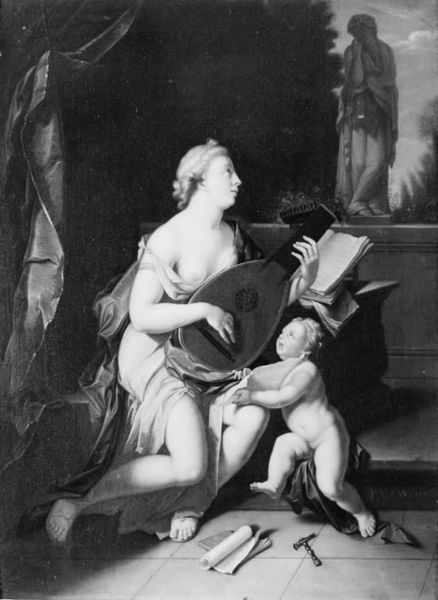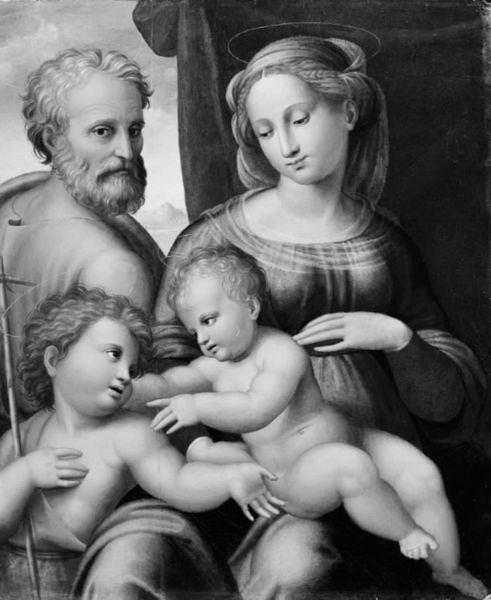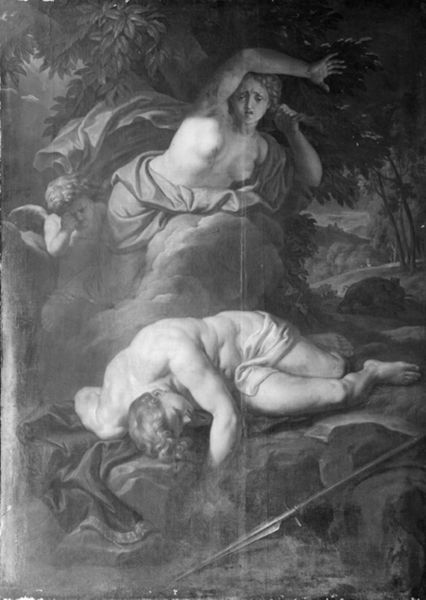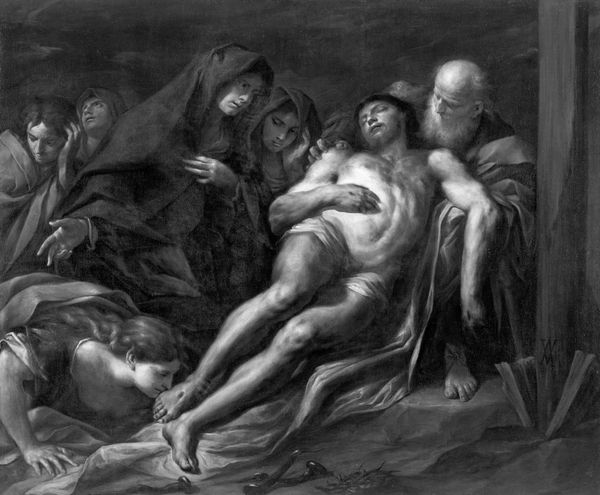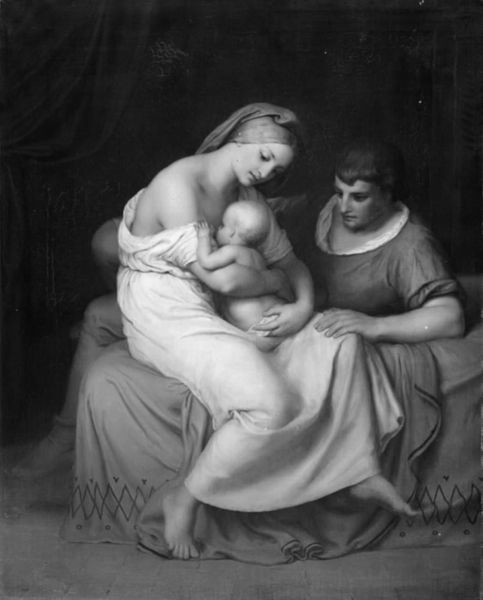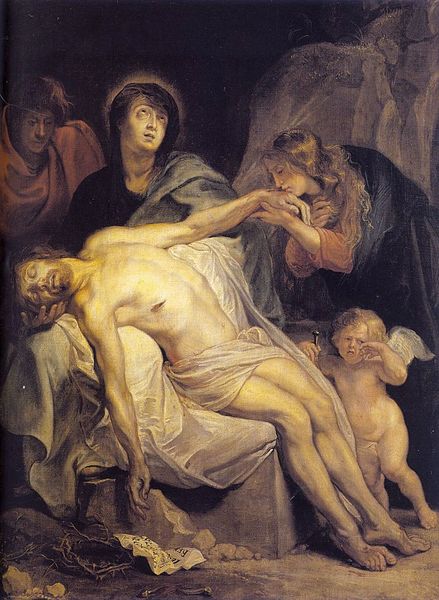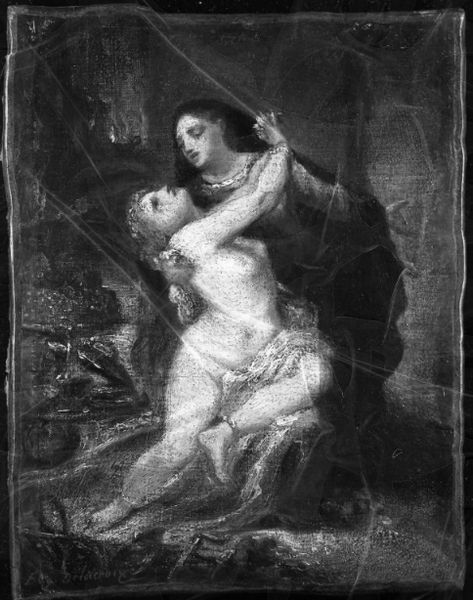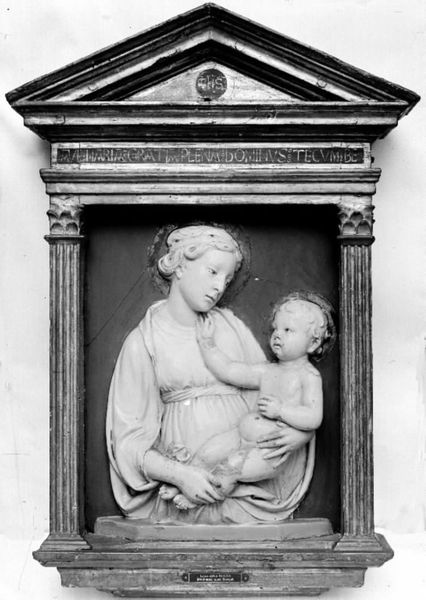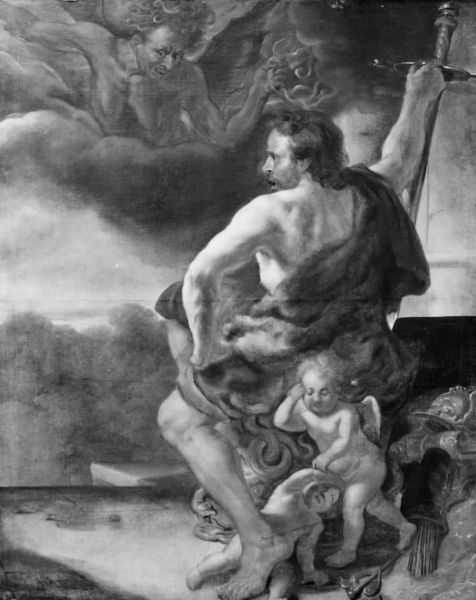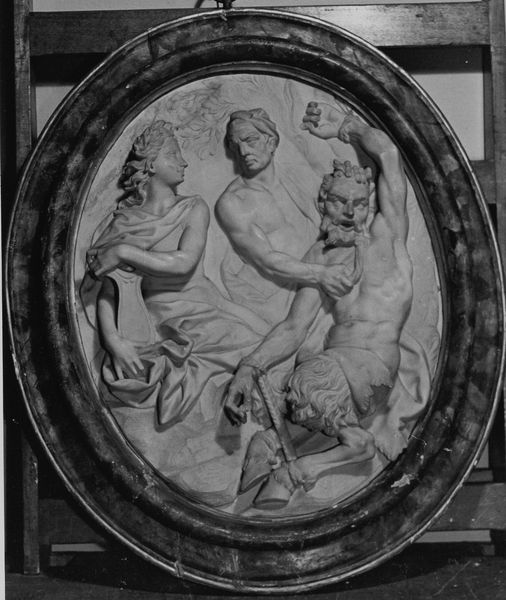
tempera, painting
#
portrait
#
tempera
#
portrait
#
painting
#
history-painting
#
italian-renaissance
#
virgin-mary
#
christ
Dimensions: 47 1/2 x 33 3/4 in. (120.7 x 85.7 cm)
Copyright: Public Domain
Curator: Jacopino del Conte's "Holy Family," likely painted between 1535 and 1598, presents a somewhat austere interpretation of a familiar scene. Editor: Yes, a restrained, almost cool tonality. The figures are tightly compressed; the composition seems to focus our attention almost exclusively on the connection between the mother and child. Curator: The interplay of lines is particularly striking, isn’t it? Note how the draping of Mary's robes creates complex geometric forms, juxtaposed with the soft curves of the figures' faces. The material seems more important than the implied divinity here. Editor: Indeed. We have this intense maternal gaze combined with almost cold geometry in the garments. Perhaps reflecting the anxieties of the Catholic Reformation era. Think of the emphasis placed on piety and sober introspection, visible in its patronage and collection practices. It definitely evokes a sense of gravitas, fitting the moment’s need to reaffirm the church’s core imagery during social turbulence. Curator: I appreciate your observation about the socio-political implications. Considering its date range, these anxieties would make sense, since Del Conte places so much detail on how he captures form. Editor: Precisely. Look, for instance, at Saint Joseph. Obscured. Diminished. It signifies that this family unit is, indeed, at odds with the social order that birthed its need. He is relegated almost to the background to the Virgin and Son duo that this image truly explores, almost denying its title. Curator: An insightful point, about how St. Joseph's presence almost creates tension within the scene's geometry, adding more substance to this image and prompting re-evaluation on the relationship dynamic within the ‘Holy Family’. Editor: Thank you. In essence, a visual study and critique of the traditional expectations and roles depicted within this imagery and a reflection on art and society! Curator: It leaves us contemplating how historical shifts mold not just actions, but even art!
Comments
No comments
Be the first to comment and join the conversation on the ultimate creative platform.
